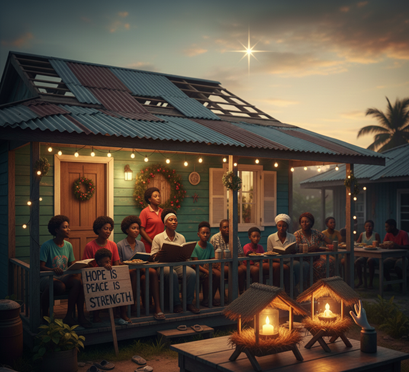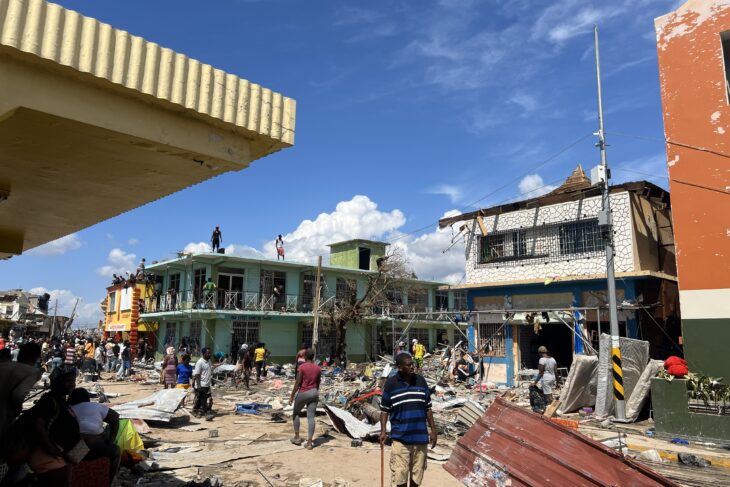
My sincere condolences go out to our friends in The Bahamas who have suffered the loss of loved ones, and extreme devastation.
The slow passage of Hurricane Dorian across The Bahamas was, for me, a new phenomenon in the concept of a natural disaster. This is the very first time that I have seen a major hurricane moving forward at 1 mph while having sustained winds of 180-200 mph. It was also accompanied by storm surges and a lot of rainfall.
Just imagine a stronger hurricane than Gilbert (1988) staying at maximum speed and not moving for more than 48 hours, and the conditions that would have prevailed for electricity, water, roads, and food supplies (fresh and frozen). Jamaica would have been a total wreck. This is only a sample of what confronted our friends on Grand Bahama Island.
Please be aware that many places in The Bahamas (including Nassau) do not have adequate natural water supplies and have to bring in millions of gallons per day by barges from the northern islands, or use expensive energy-dependent desalination plants. The low-lying nature of the other islands may have water sources now contaminated by sea water due to the storm surges.
The usual economic activities on smaller islands (mainly fishing related) must be affected. Reef damage; fish relocation; conch migration; boats and fishnets losses, will all contribute to the slower recovery efforts. In addition, major areas that cater to the tourism product will also be affected. Hotels, fishing excursions, cruise ships, shore excursions, craft vending, casinos, boat rentals and repairs, diving with the sharks, and others will all face challenges.
The importance of fishing to the usual diet in The Bahamas must not be overlooked. By their geographic location and number of reefs while at the same time having access to the Atlantic deeper waters, there is usually an abundance of a variety of larger fish for filleting and steaks.
Agriculture however, is not easily practiced in the sand that constitutes soil in most of the “family islands” with the possible exception of Long Island.
The devastation and the long timeframe raise one major problem for me that I am now tired of addressing, having done so relentlessly from 2006. Where is the recommended relief ship and how long will it take for us to realize that we MUST deal with the immediate aftermath? There will be time enough to convene the United Nations and others about the future and that will take months. But what about the people with no food; water; and electricity; who will have to spend a cold, dark, and wet night with no ability to cook? Please add to that a lack of communication.
It is high time for those small countries in the Atlantic and Pacific that are now vulnerable to changing climatic conditions that are not our fault, to speak together in a strong and united voice that will force some action on our behalf. There is a need for precautions that will ensure our own survival, even as the large countries fail to recognize the threat to their own environment and also to their wanton dependence of fossil fuels and the production of greenhouse gases.
If Hurricane Dorian had sat for 2 days blowing as a Category 5 over Florida, Georgia, and the Carolinas, then I would be afraid for the total devastation and loss of life that may very well have caused a US nationwide economic collapse. Let us face it, the intensity of hurricanes and cyclones are growing rapidly and threaten our very existence. So I recommend the following:
- Send personnel from Jamaica for medical support for a short but intensive programme.
- Direct some cash efforts in the short term from ports in Florida (that will facilitate quick delivery and distribution).
- In the medium term, revisit the ship proposal for delivery of relief goods, and support for the personnel involved in rebuilding.
- Start the leadership efforts for a coalition of Small Island Development States in an aggressive manner that will invite cooperation; or provoke a veto that will expose the real intentions of Developed Countries. Then we will know where we stand.
That will be enough for the rest of the year, and give The Bahamas time to recover and help to lead the proposals for a real mitigation and recovery strategy.



